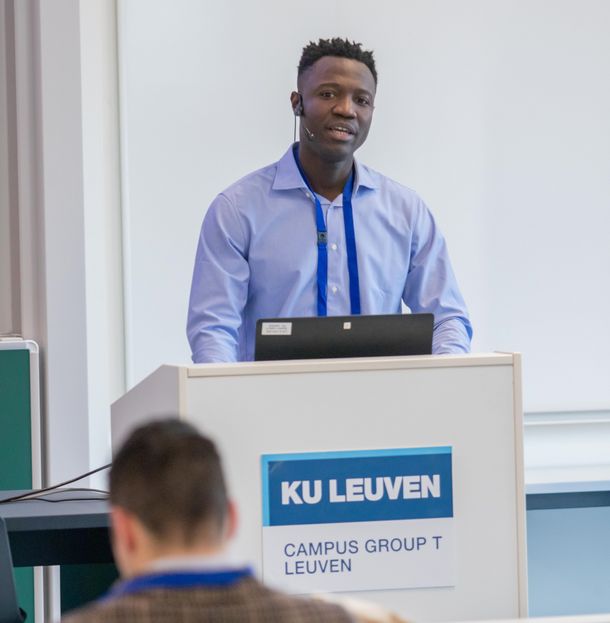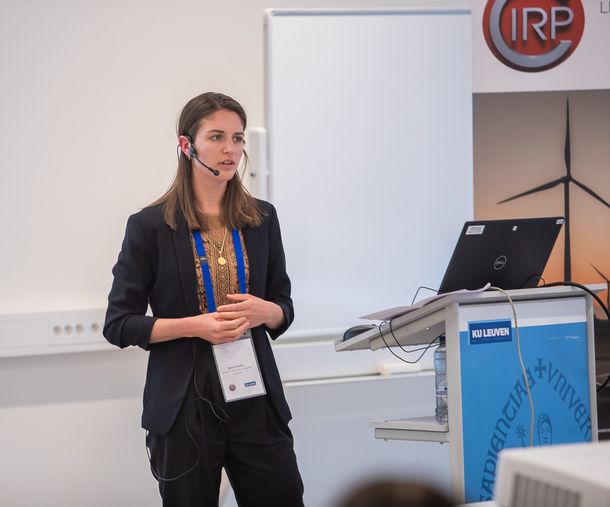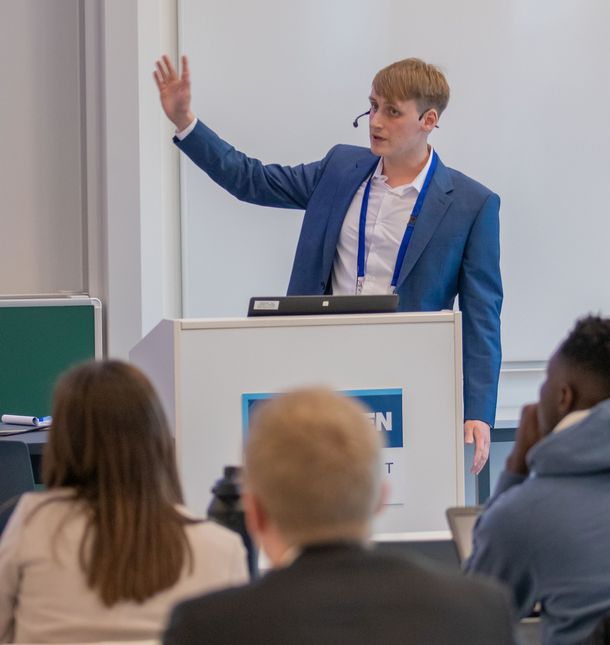Life Cycle Engineering in Ghana

Semih Severengiz, the Laboratory for Sustainability in Technology at Bochum University of Applied Sciences is researching and testing sustainable mobility concepts for sub-Saharan Africa in the project "Mobility over the Life Cycle (MoNaL)".The project, which is funded by the German Federal Ministry for the Environment, Nature Conservation, Nuclear Safety and Consumer Protection (BMUV), is being carried out in Ghana as part of the "Environmental Technologies Export Initiative", whereby the findings are generally transferable to the entire sub-Saharan region.Scientific results from the pilot project have now been presented at the 29th CIRP Conference on Life Cycle Engineering in Leuven, Belgium.
LCE2022 was the 29th edition of the global conference series on Life Cycle Engineering, which was organized under the auspices of the International Academy of Production Engineering CIRP. Experts from industry and academia met to discuss how to improve sustainability at all stages of the life cycle. The targeted application areas include manufacturing, electronics, energy systems, transportation and mobility, and healthcare systems. The following is an overview of the published contributions.
Three papers related to e-mobility in Ghana were presented at the conference:

The first paper was presented by author Fred Adjei and focused on the social acceptance and socio-economic impact of electric micromobility in the form of sharing with light electric vehicles such as e-mopeds. Using the triangular approach to social acceptance, which comprises the acceptance subject, the acceptance object and the acceptance context, transport behavior and social values were examined by means of a questionnaire. It was shown that factors such as safety, purchase costs and environmental compatibility in particular have a significant influence on the social acceptance of electric vehicles. Price, time savings and the variety of vehicles on offer were also named as important factors. There was also a great deal of interest in e-mopeds, as the majority of participants already use a motorcycle. You can find the other results here: Electrically powered micro mobility vehicles in Ghana: transition process with focus on social acceptance, https://doi.org/10.1016/j.procir.2022.02.127. Here you'll find the presentation.

In the second paper presented by Nora Schelte, the focus was on the electricity supply in Ghana, which is also a prerequisite for e-mobility. As a significant proportion of the population has no access to electricity, a solar mini-grid was examined as a solution. This could cover the growing demand for energy and provide environmentally friendly access to energy in remote regions. Based on the case study of the Don Bosco Mini Grid in Tema, optimization potentials were analyzed using a generic, Excel-based LCA model. All further information can be found here: A generic GHG-LCA model of a smart mini grid for decision making using the example of the Don Bosco mini grid in Tema, Ghana, https://doi.org/10.1016/j.procir.2022.02.12. The presentation can be found here.

The third paper presented by Jaron Schünemann involved a life cycle analysis of e-cargo bikes for transporting goods in cities in Africa. Electrified cargo bikes are considered a space-saving and environmentally friendly alternative for the delivery of parcels, food and other goods. It has been shown that greenhouse gas emissions over the life cycle are significantly lower when the batteries are powered by solar energy. The inclusion of solar-powered e-cargo bikes in the modal split of freight transportation in the Accra region would lead to greenhouse gas emission savings of 4-8%. You can read the background here: Life Cycle Assessment on Electric Cargo Bikes for the Use-Case of Urban Freight Transportation in Ghana, https://doi.org/10.1016/j.procir.2022.02.120. You can view the presentation here.
The conference offered a productive exchange on the latest developments in life cycle engineering research with interesting presentations and many opportunities to exchange ideas at a high professional level. The quality of the contributions, the exchange with the researchers and the supporting program contributed to a strong networking and a fruitful exchange of experiences.

